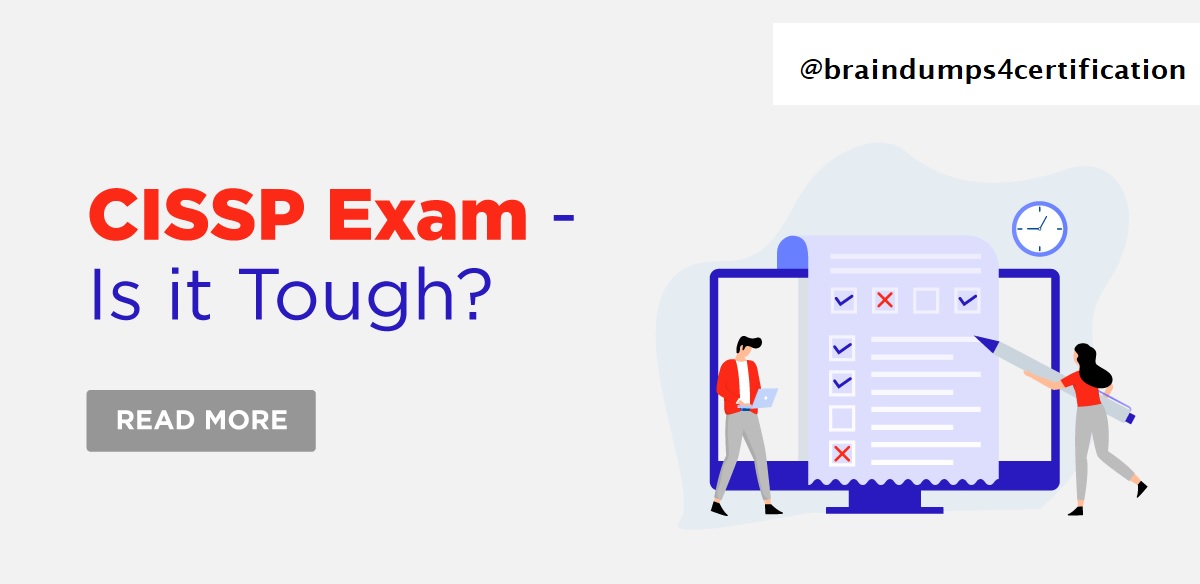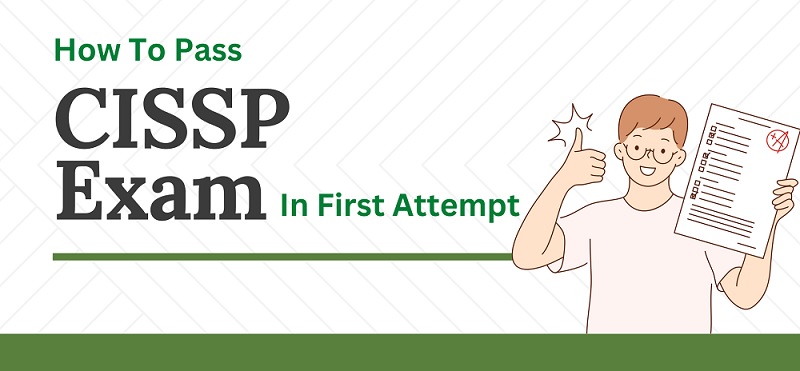Table of Contents
- The CISSP Exam: Is It Really That Difficult?
- Examining the Difficulty of the CISSP Exam
- A Comprehensive Guide to Preparing for the CISSP Exam
- How to Conquer the Challenges of the CISSP Exam
- Understanding the Level of Difficulty of the CISSP Exam
The CISSP exam is an internationally recognized certification for professionals in the information security field. It is one of the most sought-after certifications in the industry and is highly valued for the knowledge and skills it provides. This exam is widely known for being challenging and requires a great deal of experience and preparation. Therefore, it is important to understand the difficulty of the CISSP exam and what it takes to pass it. This guide will provide an overview of the exam and outline the key components that make it so difficult.
The CISSP Exam: Is It Really That Difficult?
The Certified Information Systems Security Professional (CISSP) exam is widely acknowledged as one of the most challenging examinations for cybersecurity professionals. It is designed to assess a candidate’s mastery of the knowledge required to effectively protect and manage a company’s digital security and privacy. As such, it is understandably a daunting prospect for many aspiring professionals. The CISSP exam is an eight-hour, 250-question test that covers a wide range of cybersecurity topics. It includes topics such as security management, access control, network security, cryptography, and data security.
The exam is administered by a third-party organization known as (ISC)², and candidates must achieve a minimum score of 700 out of 1000 to pass. The difficulty of the CISSP exam depends on the individual. Those with a strong foundation in cybersecurity concepts, as well as knowledge of the (ISC)² guidelines, are likely to find the exam more manageable.
However, for those who are new to cybersecurity, the exam can be a formidable challenge. In order to prepare for the exam, candidates should take advantage of online resources such as study guides, practice questions, and mock exams. Additionally, many universities and organizations offer CISSP training programs that provide an in-depth overview of the topics tested on the exam. Ultimately, the CISSP exam is a challenging but valuable assessment of a professional’s cybersecurity knowledge. With the right preparation, any individual can pass this exam and demonstrate their expertise in the field.
Examining the Difficulty of the CISSP Exam
The Certified Information Systems Security Professional (CISSP) exam is widely recognized as a difficult and rigorous test. The CISSP is a comprehensive exam that covers a wide range of topics related to information security and is designed to assess the knowledge and ability of those seeking to become certified in this field. The CISSP exam consists of 250 multiple-choice questions divided into eight different domains of knowledge.
These domains include: Security and Risk Management, Asset Security, Security Architecture and Engineering, Communications and Network Security, Identity and Access Management, Security Assessment and Testing, Security Operations, and Software Development Security. In order to pass the exam, a candidate must demonstrate knowledge in all of these areas. The CISSP exam is also known for its complexity and difficulty. It is considered to be one of the most difficult IT-related certification exams due to the breadth of knowledge it tests and the level of detail required in order to pass.
The exam is split into two parts: the knowledge assessment, which tests a candidate’s understanding of the material, and the practical application, which tests a candidate’s ability to apply the knowledge to real-world situations. The CISSP exam is a challenging and demanding test. Those seeking to become certified must dedicate significant amounts of time and effort to studying and preparing for the exam. Those who successfully pass the exam are rewarded with a prestigious certification that can open many doors in the field of information security.
A Comprehensive Guide to Preparing for the CISSP Exam
The Certified Information Systems Security Professional (CISSP) exam is a comprehensive and difficult test administered by (ISC)
It is a key credential for information security professionals and is highly sought after in the industry. To pass the exam, it is essential to be properly prepared. This guide provides an overview of the steps you should take to prepare for the CISSP exam.
Understand the Exam Structure: The CISSP exam consists of 250 multiple-choice questions that are designed to test your knowledge of the eight domains of the (ISC)2 Common Body of Knowledge. You must answer at least 700 out of 1,000 points to pass the exam. It is important to be familiar with the exam structure so that you can allocate your study time accordingly.
Familiarize Yourself with the Exam Content: The CISSP exam covers a broad range of topics, from cryptography to risk management. While it is impossible to become an expert on all of these topics, it is important to be familiar with the concepts and terminology. A great way to do this is to read through the (ISC)2 CBK, which provides an overview of the material covered on the exam.
Take Practice Exams: Taking practice exams is one of the best ways to prepare for the CISSP exam. Not only will it help you become familiar with the exam structure, but it will also give you an idea of the types of questions you can expect to see on the real exam.
Utilize Study Guides: There are a number of excellent study guides available for the CISSP exam. These guides provide an overview of the topics covered on the exam and also provide tips on how to approach different types of questions.
Attend a Study Group: Joining a study group is a great way to stay motivated and on track with your studies. Study groups also provide a platform for discussing difficult concepts and helping each other out with practice questions.
Take a Review Course: Taking a review course is another great way to prepare for the CISSP exam. These courses provide an overview of the material covered on the exam and often include practice questions and mock exams.
Get Enough Rest: It is important to get enough rest before taking the exam. Make sure to get plenty of sleep the night before the exam, and plan for breaks throughout the day. By following these steps, you can be sure that you are properly prepared for the CISSP exam. Good luck!
How to Conquer the Challenges of the CISSP Exam
The CISSP (Certified Information Systems Security Professional) exam is one of the most challenging and rewarding examinations to pass in the information technology security field. It is a comprehensive test that covers a wide range of topics from policy and architecture to access control and cryptography. As such, it can be difficult to prepare for and pass the exam. However, with the right preparation, mindset, and strategies, you can conquer the challenges of the CISSP exam and become a certified information security professional. First, start by familiarizing yourself with the exam content and structure. The CISSP examination consists of 250 multiple-choice questions that cover 8 domains of knowledge.
Each domain has a different weight, so it is important to understand the importance of each domain. Additionally, familiarize yourself with the exam format, including the types of questions and the amount of time you have to answer them. Second, develop a clear study plan and stick to it. Set aside a certain amount of time each day to study. Don’t try to cram; instead, focus on one topic at a time and make sure you understand it before moving on to the next. Additionally, create a timeline and realistic goals for when you want to finish studying each domain. Third, practice as much as you can.
Take practice tests, read through sample questions, and study the material thoroughly. Read the questions carefully and look for keywords that will help you determine the correct answer. Additionally, practice your time management skills. Make sure you are comfortable with the allotted time and that you can answer questions quickly and accurately.
Finally, make sure you are mentally prepared for the exam. Get plenty of rest the night before and eat a light meal. During the exam, stay positive and confident; don’t give up if you don’t know the answer to a question, move on and come back to it if you have time. Lastly, have a positive attitude and believe in yourself; you can do it! By following these steps and putting in the necessary effort, you can conquer the challenges of the CISSP exam and become a certified information security professional. Good luck!
Understanding the Level of Difficulty of the CISSP Exam
The Certified Information Systems Security Professional (CISSP) exam is a challenging and comprehensive test that is designed to assess the knowledge and skills of those seeking to be certified as information security professionals. It is considered to be one of the most difficult professional certification exams, and it requires a significant amount of study and preparation in order to pass. The exam is divided into eight sections, each of which covers a different set of knowledge areas related to information security. These topics include access control, cryptography, security operations, risk management, and more.
Each section contains a variety of multiple-choice questions, as well as some essay questions. The CISSP exam is also known for its strict time limits. Test takers are given three hours to complete the exam, and the time must be managed carefully in order to ensure that all questions are answered correctly. In addition to the time limits, the difficulty of the questions is also a major factor in determining the overall difficulty of the exam. The questions on the CISSP exam are designed to test the candidate’s knowledge on a variety of topics, and they range in difficulty from basic to advanced.
In general, the questions are difficult and require a deep understanding of the topics in order to answer them correctly. The exam also contains questions that are designed to be difficult for the average test taker, in order to weed out those who are not truly qualified for the certification. Overall, the CISSP exam is a challenging and comprehensive test that requires a great deal of preparation and study in order to pass. Those who are able to successfully pass the exam will demonstrate a high level of knowledge and skill in the field of information security.
Conclusion
In conclusion, the CISSP Exam is one of the most difficult IT security certifications available. It requires a deep understanding of a complex set of topics, and it is not a certification exam that can be completed easily or quickly. In order to pass the exam, it is essential to have a comprehensive understanding of the material and to dedicate a significant amount of time to studying and preparing. However, obtaining the CISSP certification is a great achievement and can be extremely rewarding.

